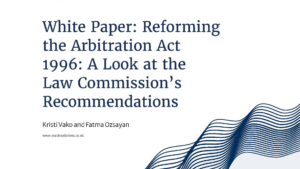Sudanese refugees were granted Asylum in the UK
Have you got a question?
Zuhal is a Sudanese national and had previously experienced persecution in Sudan caused by discrimination on the basis of where she was originally born. As a vulnerable woman, she fled with her daughters as she feared for her life and came to the UK to seek refuge and applied for asylum.
Fortunately, Zuhal contacted Oracle Solicitors upon arriving in the UK and instructed us to assist her with her asylum claim. Our solicitor, Ronald Sempebwa guided her throughout the process including submission of her Preliminary Information Questionnaire, witness statement and supporting evidence and substantive interview.
At the end of February 2019 Zuhal and her daughters were granted asylum in the United Kingdom.
Alessio, with the Marketing team, strives to help colleagues excel with client care, while also keeping the firm ‘on the pulse’ regarding the most critical...
-
Aviation House, 125 Kingsway
London WC2B NH
United Kingdom
- (+44) 020-3051-5060
Book a call back
Share this article
Got a question?
Please complete this form to send an enquiry. Your message will be sent to one member of our team.
Related posts

Landmark Aviation Cases Set New Standards in EU261 Interpretation
Our client is a company listed in Shanghai Stock Exchange, one of the biggest intelligent power distribution solution providers as well as manufacturer of smart meters, transformers, box-type substations, E-Car charger and photovoltaic inverters.

What’s the Latest in Data Protection? An Outline of Some Key Elements of the proposed UK Data Protection and Digital Information Bill
A HMO is any home rented out, to three or more tenants, from more than one household. This applies whether it is a house or a block of flats and requires landlords to register with their local council.

Private Equity and Venture Capital in ESG Projects and Sustainability Investments: Challenges for Law Firms
Over the last few years, the world has witnessed a significant shift towards environmentally and socially responsible investing.

Reforming the Arbitration Act 1996: A Look at the Law Commission’s Recommendations
Have you got a question? Enquire Now Kristi Vako and Fatma Ozsayan have looked at the new recommendations published by the Law Commission.



